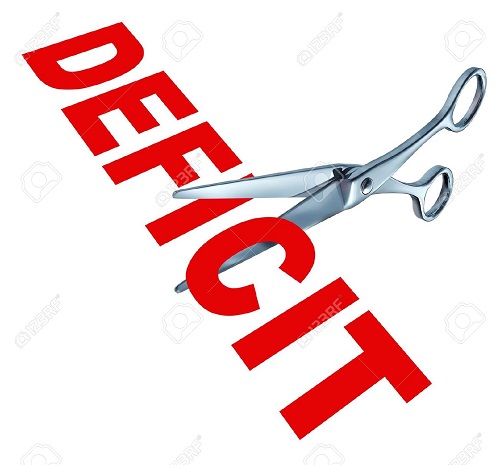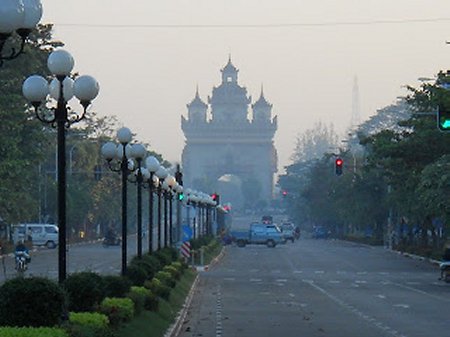Revised Govt Plan To See Bigger Budget Deficit
Source: Vientiane Times
The government’s proposal to revise the next four-year budget plan (2017-2020) will see the budget deficit increase to 4.39 percent of gross domestic product (GDP), up by 0.32 percent compared to the four-year plan approved earlier by the National Assembly (NA).
Deputy Prime Minister and Finance Minister Somdy Duangdy presented the proposed plan to the ongoing ordinary session of the parliament on Monday.
The proposed deficit figure is also higher than what was set out in the five-year plan for 2016-2020, which the NA earlier approved at only 3 percent.
 |
| Mr Somdy Duangdy. |
In its proposed plan, the government has set a total revenue target of 111,530 billion kip, a decrease of 11,311 billion kip compared to the five-year plan.
Domestic revenue is expected to reach 98,172 billion kip, dropping by 9,468 billion kip compared to the five-year plan.
Expenditure over the next four years is targeted to reach 136,992 billion kip, decreasing by 10,324 billion kip compared to the five-year plan.
Economists say increasing the budget deficit would mean the country will likely accumulate more debt when the government is forced to borrow to balance the deficit.
The proposal to revise the budget plan comes in parallel with the government’s proposal to revise the next four-year national socio-economic development plan, which seeks to lower macroeconomic targets after failure to meet the target of last fiscal year as a result of unfavourable external and internal conditions.
Average annual economic growth is proposed to be lowered to 7.2 percent over the next four years, a decrease from at least 7.5 percent as originally set out in the five-year plan.
In the last fiscal year, which ended in September, economic growth was recorded at only 6.9 percent. In addition, only 95 percent of the targeted revenue figure was collected, while expenditure could not be cut, causing the budget deficit to jump to 6.9 percent, higher than the normal rate that the government usually adopts at 3-5 percent.
The government told parliament that the failure to meet last fiscal year’s target was due to the impact of slowing regional and global economies as well as budget constraints in Laos.
Against this backdrop, the government recognised the need to ask the NA to revise macro targets over the next four years, Prime Minister Thongloun Sisoulith told parliament on Monday.
He promised that the government would continue to strengthen financial and budgetary management in a bid to resolve budgetary difficulties by modernising revenue collection methods and expanding revenue-generating sources.
The PM pledged to inspect the implementation of the budget to ensure its effectiveness and prevent unapproved projects from being created to avoid unapproved debts.
The government pledged to stabilise the currency in line with market-orientated mechanisms, while defining appropriate interest rates to be offered by commercial banks.
Mr Thongloun said the government would continue to streamline procedures and regulations conducive for easing investment and business operations, while cutting unnecessary costs.
The government has also vowed to place greater importance on small and medium enterprises.



